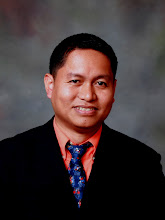The Relevance of OT Traditions for Contemporary Christian Ministry
Politics and personal agenda become more powerful voices in the church institution. Evangelicalism values the orderly system and, consequently, local churches are more of a bureaucracy; the voice of God is easily identified with the voice of the people. Hence democratic politicking is more viable than spirituality, holiness, integrity, and gift for the ministry. More likely, any leader is on position for their influence, status, money, and alliances. Despite of the autonomous prophetic ministry and autocratic system of OT priesthood, modern minister can glean still the demand of godly living, intercessory ministry, and financial integrity remains a valuable philosophy in the ministry.
The Sage, who claims no monopoly to wisdom tradition, is such an example for Christian educational institutions of today. How will seminary teachers know that what they impart is really what the church needs? How will a full-time pastor feel to be taught with ministerially inexperienced teachers or uninvolved with local churches? Are students enrolled to gain more “theory” in exchange to their “first hand” knowledge of the field? Who teaches whom—the one sent according to their mission agency’s agenda or the one who are deeply concerned with the cultivation of Filipino church life? It seems that “specialists” do not mind what others think. The wisdom of “other-mindedness”, I believe, is a key to the propagation every local churches’ fullness in ministry. Hence, I observed that the relevance of the courageous prophetic imagination, spiritual and moral standard of priesthood in Christ, and the wisdom of inter-personal reflection is as significant as ever. Since Bible schools and seminaries served as center of Christian education in ministry, (instead of the local church) isn’t it that the local churches and seminaries must have mutual agreement as to discern what really is the purpose, vision, goal, and mission of the local church? An open communication between educational centers and ministerial people ought to be a norm rather than one-way tradition. From hence the seminary can supply what the church really need. Christian ministers learn dialectically both from OT and modern cultural situations. Seminaries must be open to the local churches, to listen and learn from them and see what they can supply.


0 Comments:
Post a Comment
<< Home